What’s the Fastest Way to Transition into an AI-Enabled CX Leadership Role?
Customer Experience is entering a new era. The leaders of tomorrow won’t be defined by how well they manage surveys or journey maps. They’ll be defined by how quickly they apply AI to deliver measurable impact on churn, retention, and revenue.
The challenge for many professionals is figuring out where to start. CX data is often messy, incomplete, and scattered across systems. Traditional wisdom says to wait for a perfect data warehouse or a fully integrated stack before pursuing advanced analytics. That mindset slows careers.
The fastest path to an AI-enabled CX leadership role is different: start small, move fast, and use early wins to prove value.
Why Speed Beats Perfection
Executives don’t promote people for designing flawless data architectures. They promote those who deliver results. Trying to fix every data gap before deploying AI is a recipe for stalled progress.
In (Customer AI Masterclass, Lesson 3.6 Data Engineering), we emphasize the minimum viable data approach. Even modest datasets—usage logs, support tickets, renewal histories—can fuel predictive models that uncover churn risk or highlight expansion opportunities. Acting on those insights quickly is what builds credibility.
Speed matters because executives want proof that AI can move the needle today, not in three years.
Turning Pilots into Leadership Signals
Small pilots can deliver outsized impact when framed correctly. A churn-reduction project that saves a handful of key accounts demonstrates financial relevance. An NRR uplift of just 2–3% tied to AI-driven interventions can translate into millions in recurring revenue.
In (Lesson 6.4 Customer AI Financial Model), we show how to present these results in executive terms—demonstrating direct linkage between AI interventions and financial outcomes. This visibility accelerates career progression.
The Playbook for Fast Transition
Here’s a practical sequence for moving from practitioner to AI-enabled CX leader:
-
First 90 days: Identify one high-impact dataset. Run a predictive model on churn or upsell likelihood (Lesson 2.4 Mapping the Amigos to Customer AI Problems). Share results in financial terms.
-
Months 4–6: Implement prescriptive recommendations (Lesson 5.6 Customer AI with Prescription). Document impact on NRR or CLV.
-
Months 7–12: Scale learnings to additional segments. Introduce automated nudges or digital interventions to prove leverage at scale (Lesson 7.2 The Maturity Model).
-
Year 2: Formalize your role as the AI-enabled CX strategist, leading cross-functional initiatives that integrate AI-driven insights into growth strategy.
This roadmap proves capability quickly. It shifts professionals out of the reporting trap and into roles where they design strategy and guide action.
Why Executives Value Early Wins
Executives are skeptical of long, expensive data projects that only promise value years down the line. They respond to tangible results in the short term.
By delivering fast pilots that show churn reduction or NRR uplift, professionals demonstrate three qualities executives value most:
-
Clarity — identifying the right data signals that matter (Lesson 4.2 Insights Framework).
-
Confidence — forecasting outcomes and showing financial impact.
-
Control — prescribing actions that consistently influence results (Lesson 5.4 Action Framework).
These capabilities mark professionals as emerging leaders.
Conclusion
The fastest way to transition into AI-enabled CX leadership is not waiting for perfect systems, but proving value with speed. Minimum viable data projects that reduce churn or lift NRR position professionals as the internal champions executives trust to lead transformation.
This transition path is central to the Customer AI Masterclass, where CX, CS, and RevOps professionals learn data strategies, predictive models, and prescriptive frameworks to deliver early wins and accelerate into leadership roles.

